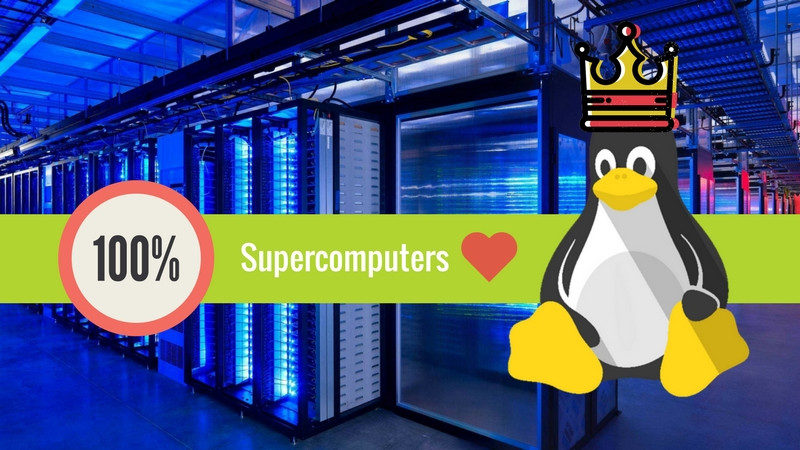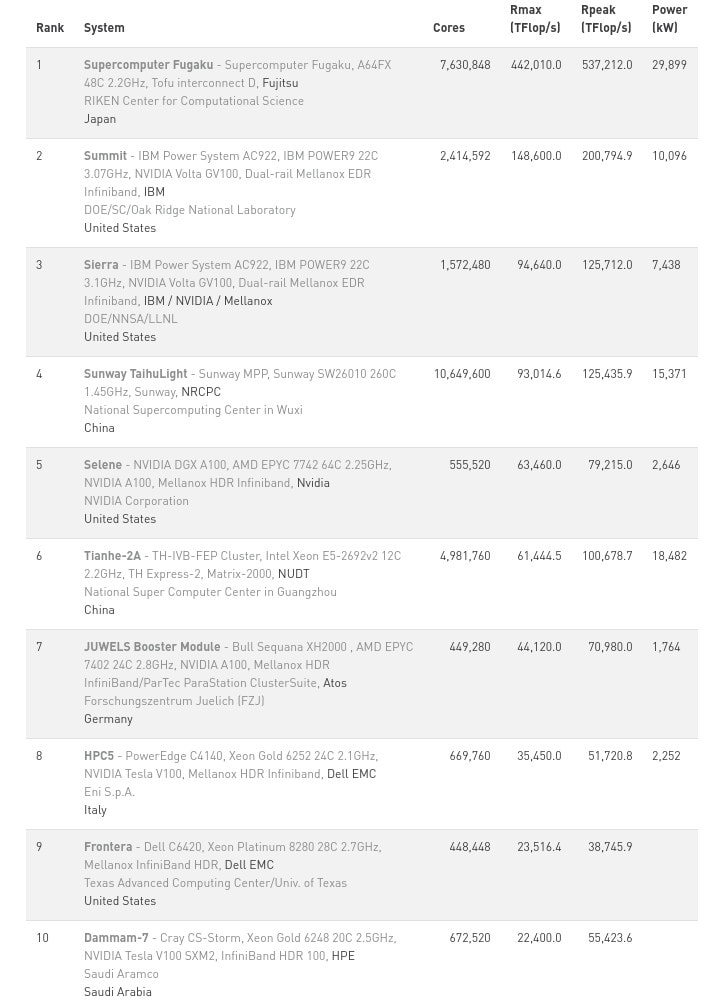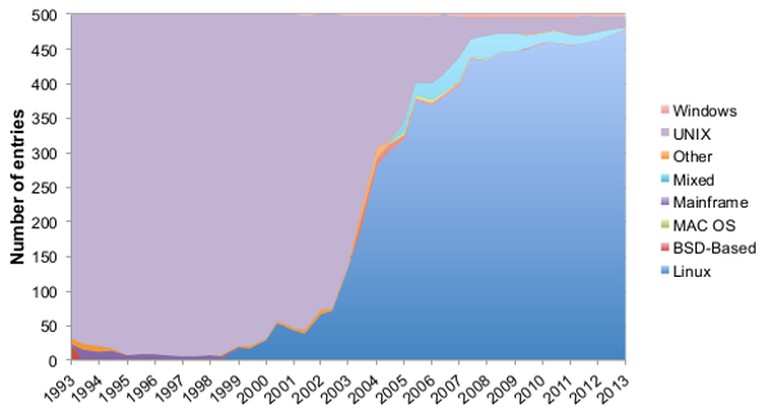Linux might be struggling for a decent desktop market share but it is definitely ruling the world of supercomputers. Linux is the supercomputer operating system by choice.

As per the latest report from Top 500, Linux now runs on all the fastest 500 supercomputers in the world. The previous number was 498 as the remaining two supercomputers ran Unix back in around 2017.
Top500 is an independent project that was launched in 1993 to benchmark supercomputers. It publishes the details about the top 500 fastest supercomputers known to them, twice a year. You can go the website and filter out the list based on various criteria such as country, OS type, vendors etc.
Don’t worry, I am going to list some of the most interesting facts from this report. But before let’s discuss why Linux is the preferred choice of an operating system for supercomputers.
Linux rules supercomputers because of its open source nature
20 years back, most of the supercomputers ran Unix. But eventually, Linux took the lead and become the preferred choice of operating system for the supercomputers.
The main reason for this growth is the open source nature of Linux. Supercomputers are specific devices built for specific purposes. This requires a custom operating system optimized for those specific needs.
Unix, being a closed source and propriety operating system, is an expensive deal when it comes to customization. Linux, on the other hand, is free and easier to customize. Engineering teams can easily customize a Linux-based operating system for each of the supercomputers.
However, I wonder why open source variants such as FreeBSD failed to gain popularity on supercomputers.
To give you a year wise summary of Linux shares on the top 500 supercomputers:
- In 2012: 94%
- In 2013: 95%
- In 2014: 97%
- In 2015: 97.2%
- In 2016: 99.6%
- In 2017: 99.6%
- In 2018: 100%
- In 2019: 100%
- In 2020: 100%
Some interesting facts about top 500 supercomputers

- United States of America has the most supercomputers in the top 10 rank, thanks to IBM, NVIDIA, and DELL.
- Supercomputer Fugaku is the fastest supercomputer on the planet as of now (2020) in Japan.
- China has the most number of supercomputers as it owns 213 out of top 500 supercomputers. The USA falls in second place with 113 entries in the top 500.
- Japan is in third place with 34, followed by France with 18, Germany with 18, and UK with 12. India and Saudi Arabia have 3 and 5 respectively while Russia has 2 supercomputers.
- Out of the top 10 fastest supercomputers, USA has 4, China has 2 while Japan, Germany, Saudi Arabia and Italy have 1 each.
Do share this article on Reddit, Facebook, Twitter and other social media channels. It’s an achievement for Linux and we got to show off. Who knows, if they get inspired and start to learn Linux.
The article has been updated in November 2020 with the latest stats.


